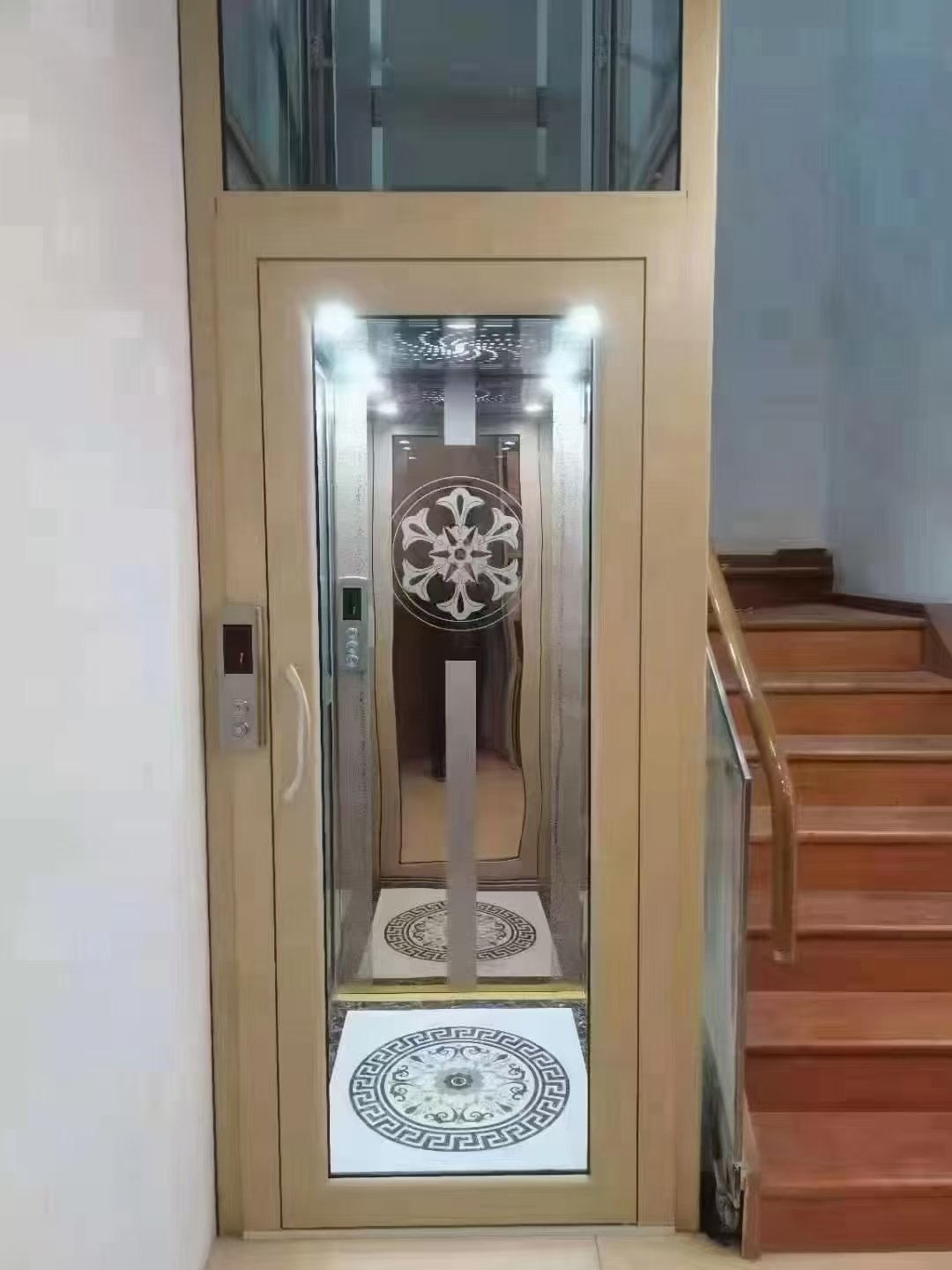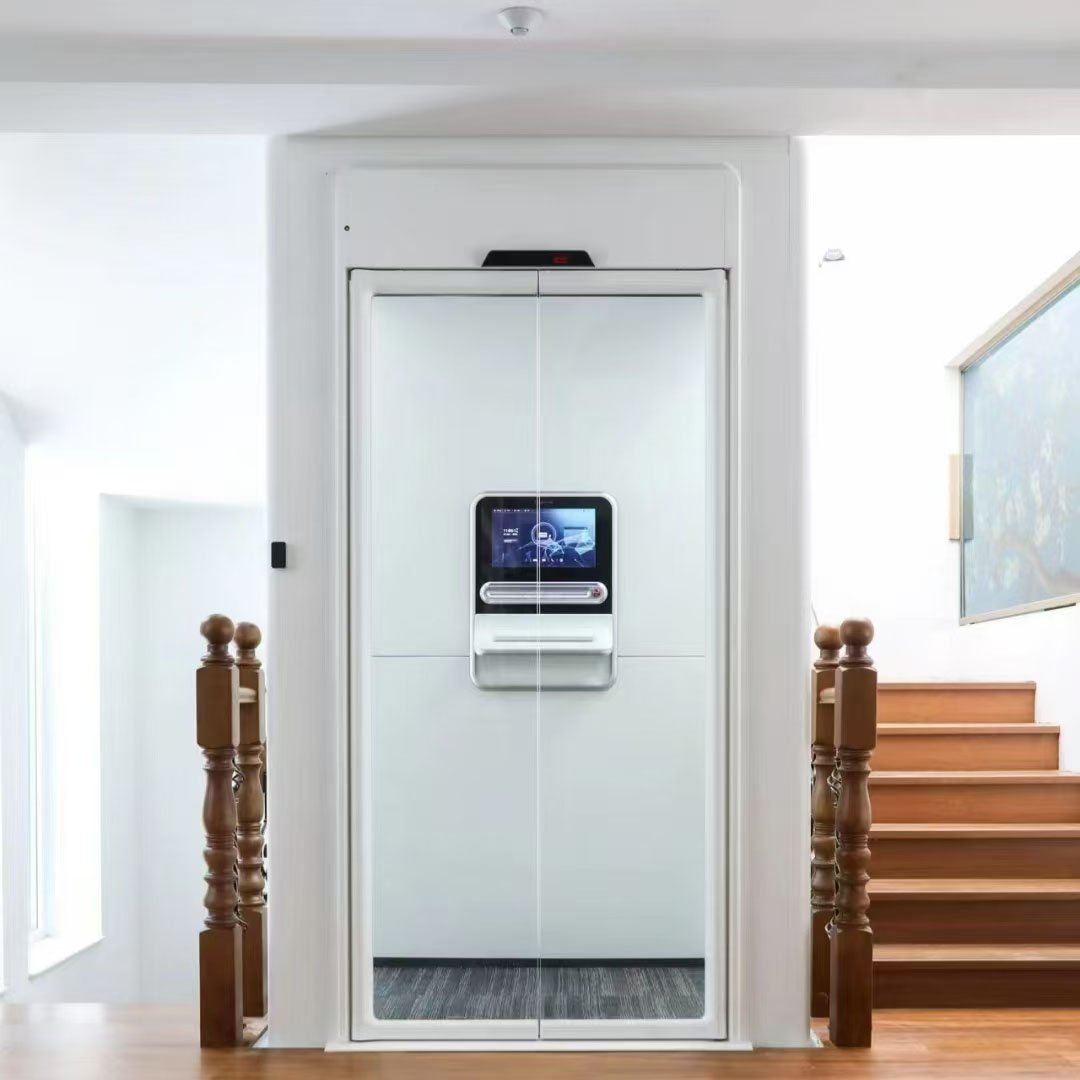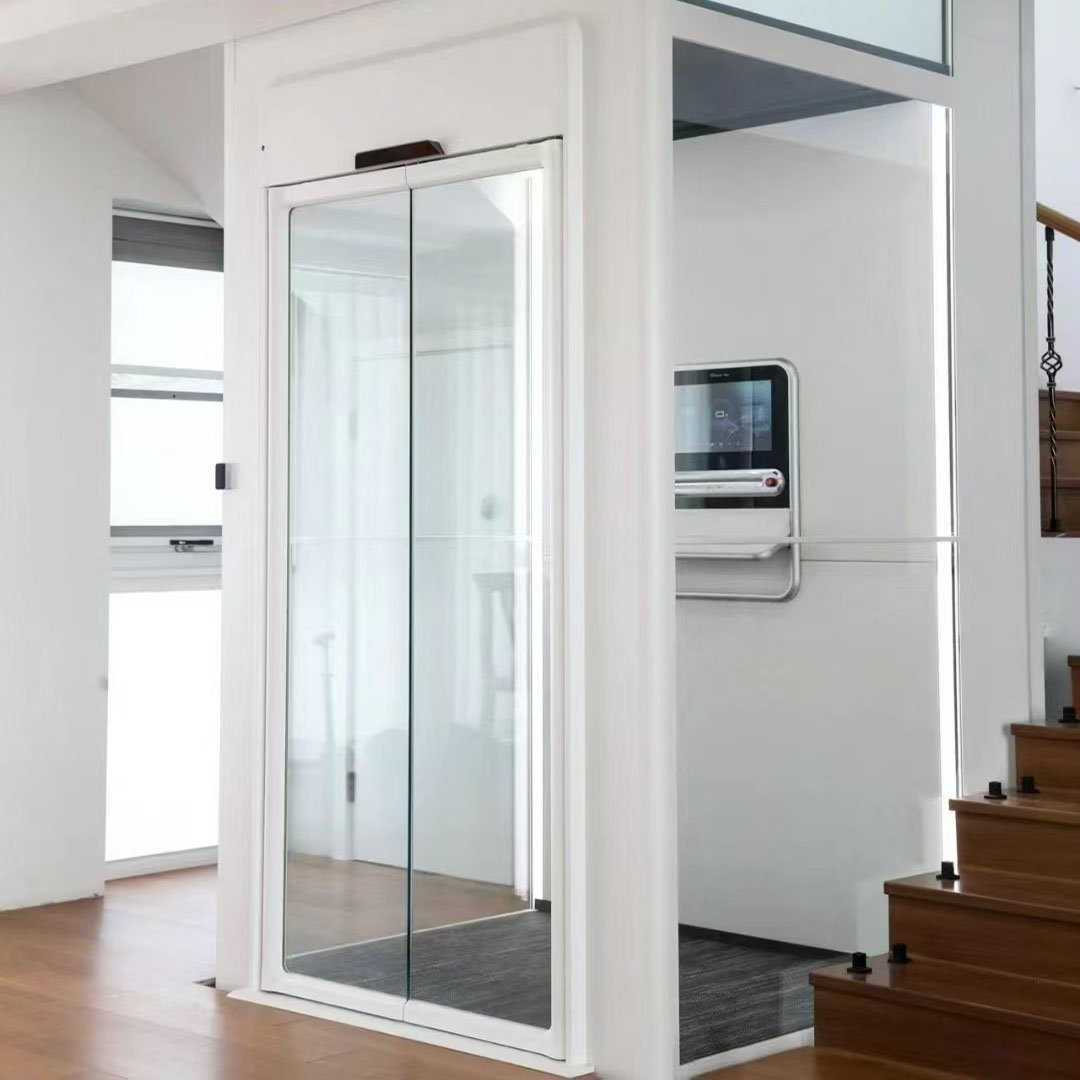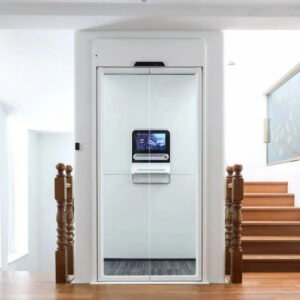Contact
- +86 198 6184 4962
- jinanxuxin@gmail.com
- +86 198 6184 4962
- Jibei Development Zone, Jinan City, Shandong Province, China
Description
Household hydraulic elevators, also known as household grocery elevators, are an increasingly popular vertical transportation equipment in households, especially suitable for multi story residences or villas. They are powered by a hydraulic system and drive the elevator up and down through the pressure of hydraulic oil. Although hydraulic household elevators have many advantages, there are also some disadvantages. Next, we will explore the advantages and disadvantages of hydraulic household elevators to help readers better understand this equipment.

Advantages of hydraulic household elevators
1. High security
The safety of hydraulic household elevators is relatively high. Its design usually includes multiple safety protection systems, such as overload protection, emergency braking devices, etc. When the elevator malfunctions, the structure of the hydraulic system can effectively prevent sudden drops and reduce the risk of injury to passengers.
2. Strong applicability
Hydraulic household elevators are suitable for various types of buildings, whether it is newly-built residential or renovated old houses, and can be easily installed. The bottom of hydraulic elevators does not require a machine room, saving complex civil engineering work and making it very suitable for households with small spaces.
3. Low noise
Hydraulic household elevators generate relatively low noise during operation and cause minimal interference to the home environment. This enables families with children or elderly to better ensure the comfort of living.
4. Easy maintenance
Compared to mechanical systems, hydraulic systems have simpler maintenance work and longer maintenance cycles. Regular inspection of hydraulic oil and oil seals can effectively extend the service life of elevators.
5. Comfortable ride
Hydraulic household elevators operate smoothly during the lifting process, without causing severe shaking, providing a comfortable riding experience and suitable for users of all ages.

Disadvantages of hydraulic household elevators
1. High cost
Compared to traditional stairs or other types of elevators, hydraulic home elevators have a higher initial investment. The procurement, installation, and subsequent maintenance costs of the equipment itself may put some pressure on the family’s economic situation.
2. Space occupation
Although hydraulic elevators do not require a dedicated machine room, they still require a certain amount of building space during installation. Especially in smaller residences, it may affect the use of other spaces.
3. Slow speed
The lifting speed of hydraulic household elevators is usually lower than other types of elevators, such as gear driven elevators. This may cause some inconvenience to users when used frequently.
4. Risk of hydraulic oil leakage
The hydraulic system relies on hydraulic oil to transmit power. If a leak occurs, it will not only affect the normal operation of the elevator, but may also cause pollution to the environment. Regularly check the sealing of the hydraulic system during use.
5. Influenced by the environment
The performance of hydraulic household elevators may be affected by environmental temperature. Under extreme weather conditions, the viscosity of hydraulic oil may change, thereby affecting the efficiency and safety of elevators.
Get the latest price? We will reply as soon as possible (within 12 hours)
Related products
-
hydraulic elevator
Household hydraulic ladder -
Silent hydraulic elevator
Household hydraulic ladder -
villa elevator
Household hydraulic ladder -
home elevator
Household hydraulic ladder









